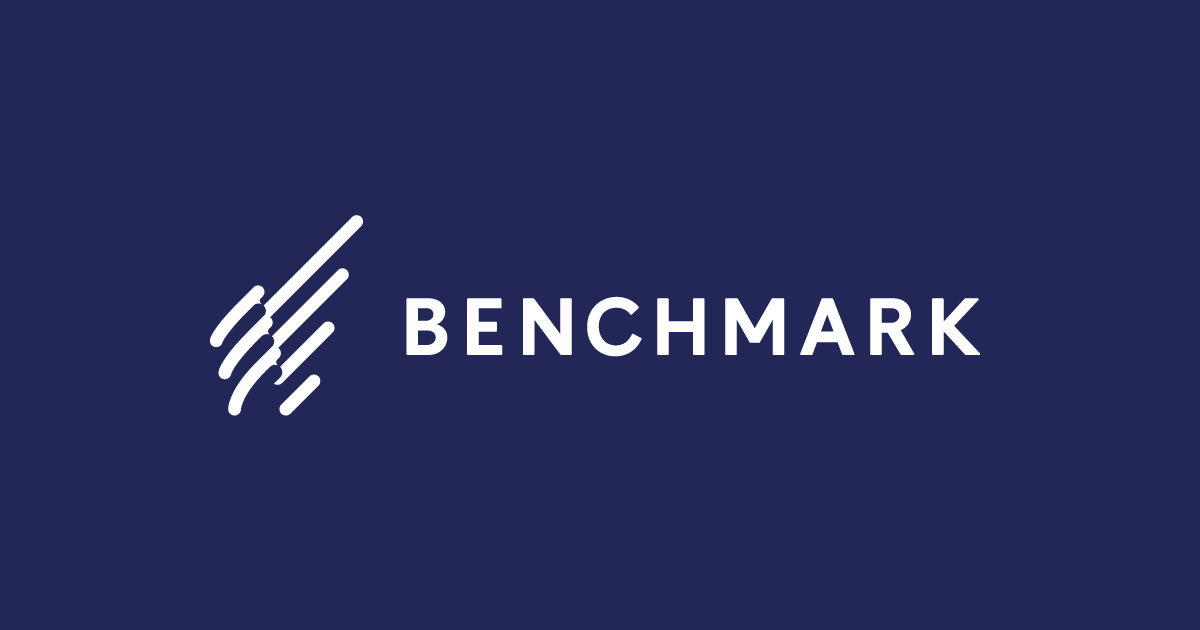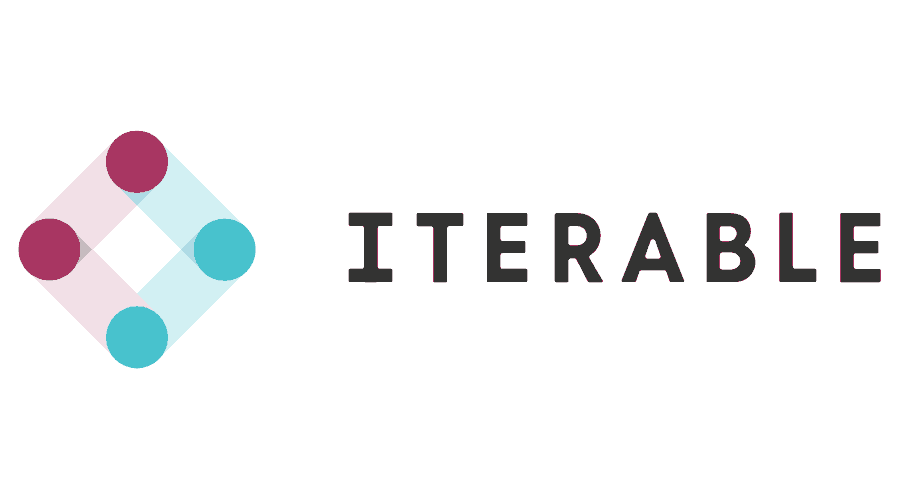Welcome to our comprehensive showdown between two of the most talked-about email marketing tools in 2024: Benchmark Email and Iterable. In the digital marketing world, where email remains a kingpin, choosing the right tool can make all the difference. In this deep dive, we’ll untangle the features, usability, and unique offerings of these platforms to help you decide which tool might just be your ticket to email marketing triumph this year. Let’s start by exploring a critical aspect of any email marketing tool: User Interface and Ease of Use.
| Benchmark Email | Iterable |
|---|---|
 |  |
| G2 Score – 4.3 out of 5 stars | G2 Score – 4.4 out of 5 stars |
| TrustRadius Score – 6.5 out of 10 | TrustRadius Score – 8.6 out of 10 |
User Interface and Ease of Use: The First Impression Counts
The usability of an email marketing platform is the linchpin of its effectiveness. A clunky, confusing interface can be a major roadblock, while a smooth, intuitive one can be a dream come true. Let’s compare Benchmark Email and Iterable on this front.
Benchmark Email: Effortless and Intuitive
Imagine walking into a well-lit room where everything is exactly where you expect it to be. That’s Benchmark Email for you. Renowned for its user-friendly interface, Benchmark Email makes navigating through the complexities of email marketing feel like a breeze.
From the moment you sign up, Benchmark guides you through a seamless setup process. The dashboard is cleanly laid out, with clear labels and an uncluttered design, making it easy for even the least tech-savvy users to get started.
Crafting emails with Benchmark’s drag-and-drop editor is a piece of cake. It’s intuitive, responsive, and packed with a variety of templates that cater to different styles and preferences. Whether you’re crafting a quick update or an elaborate newsletter, the process is straightforward and hassle-free.
The platform also shines in its approach to campaign management and automation. Setting up automated email sequences is simple, with clear instructions and helpful tips along the way. For small businesses or solo marketers, this ease of use is a game-changer, allowing them to set up sophisticated campaigns without the need for extensive technical know-how.
Iterable: Modern and Feature-Rich
Now, let’s shift our focus to Iterable. Stepping into Iterable is like stepping into a high-tech control room where everything you need is at your fingertips, albeit with a slight learning curve. Iterable is designed for the modern marketer, offering a plethora of features wrapped in a sleek, contemporary interface.
Iterable takes pride in its advanced capabilities, which are evident from its dashboard layout. The platform offers a range of sophisticated tools, from workflow automation to detailed analytics. While this might seem daunting at first, especially for beginners, the design is thoughtful, and navigation is more intuitive than you might expect.
The email builder in Iterable is robust, offering flexibility and a host of customization options. It’s a playground for creativity, allowing marketers to craft emails that truly stand out. However, leveraging the full power of Iterable’s email editor might require a bit of a learning curve, especially for those new to email marketing.
In terms of user interface and ease of use, Benchmark Email is the clear winner for those seeking simplicity and an intuitive experience. It’s ideal for beginners or those who value straightforwardness in their tools. Iterable, on the other hand, is better suited for experienced marketers or those who need a more advanced set of features and are willing to climb a steeper learning curve.
Email Design and Customization: Unleashing Creativity in Campaigns
A crucial aspect of any email marketing tool is its capacity for design and customization. After all, your emails are a direct line to your audience and a reflection of your brand. Let’s dive into how Benchmark Email and Iterable fare in empowering your creative side.
Benchmark Email: Where Simplicity Meets Creativity
Benchmark Email understands that not everyone is a designer at heart, and that’s where its strength lies. The platform offers a user-friendly drag-and-drop email editor loaded with a variety of customizable templates. Whether you’re crafting a basic newsletter or a complex promotional email, Benchmark makes it easy.
The templates are not just plentiful but also diverse, catering to various industries and occasions. But where Benchmark truly shines is in its customization capabilities. You have the freedom to play around with layouts, colors, fonts, and more, allowing your brand’s personality to shine through your emails.
What’s more, Benchmark ensures that your emails look great on any device. The responsive design feature automatically adjusts your email layout to fit screens of all sizes, which is critical in today’s mobile-first world.
Iterable: Advanced Customization for the Experienced Marketer
Iterable takes email design to a whole new level. It’s like a canvas for the more experienced marketer, offering advanced customization options that go beyond the basics. The platform’s email editor is powerful and adaptable, designed for those who want granular control over their email designs.
Here, you’re not just picking a template and tweaking it; you’re crafting an email experience. Iterable provides a range of sophisticated tools that allow you to incorporate dynamic content, personalized elements, and even interactive features. This level of customization can lead to more engaging and effective emails but may require a bit more expertise and time investment.
Iterable also ensures that your emails are mobile-responsive, but the level of detail and customization it offers means you might need to spend more time testing and optimizing for different devices.
In the realm of email design and customization, both Benchmark Email and Iterable offer compelling features, but they cater to different users. Benchmark Email is ideal for those who want a blend of simplicity, ease of use, and creative freedom. It’s great for small businesses or individuals who need to create professional-looking emails without a steep learning curve.
Iterable, on the other hand, is perfect for advanced users or larger marketing teams who need deeper customization and are willing to invest more time in designing their emails. Its advanced features offer the flexibility to create highly personalized and dynamic email experiences.
Automation and Workflow Management: Streamlining Your Email Strategy
Automation is a crucial feature in email marketing tools, significantly impacting the efficiency and effectiveness of your campaigns. Let’s examine how Benchmark Email and Iterable approach automation and workflow management.
Benchmark Email: Automation for Everyone
Benchmark Email makes automation accessible to all. It offers a range of automation options that are easy to set up and manage, making it ideal for businesses of all sizes. Whether you’re a small business owner or part of a larger marketing team, you can quickly create automated email sequences, from simple autoresponders to more complex, behavior-triggered series.
The platform’s visual journey builder allows you to map out your automation workflows, providing a clear overview of your email sequences. This visual approach makes it easier to understand and optimize your campaigns. Benchmark also excels in segmenting your audience, allowing you to tailor your automated emails to different segments, increasing relevance and engagement.
Iterable: Advanced Automation for Sophisticated Campaigns
Iterable takes automation to a more advanced level. It’s designed for marketers who need comprehensive and sophisticated automation capabilities. The platform offers a powerful workflow builder that supports a wide array of triggers and actions, enabling you to create highly personalized and complex email sequences.
Iterable’s strength lies in its ability to integrate email automation with other channels, such as SMS and push notifications, providing a seamless multi-channel marketing experience. This level of automation sophistication is particularly beneficial for larger organizations or those with intricate marketing strategies.
The platform also offers advanced segmentation capabilities, allowing for highly targeted and effective automated campaigns. However, mastering Iterable’s automation features might require a bit more time and expertise.
In the sphere of automation and workflow management, Benchmark Email and Iterable each shine in their own ways. Benchmark Email is great for businesses that need straightforward and effective automation tools. Its user-friendly approach makes it suitable for those who want to implement automation without a steep learning curve.
Iterable, meanwhile, is ideal for marketers who require advanced automation capabilities. Its comprehensive and sophisticated features are well-suited for complex, data-driven marketing strategies and larger marketing teams.

Related: Check out our free SEO suite

Analytics and Reporting: Gaining Critical Insights
Analytics and reporting are key to understanding the effectiveness of your email marketing campaigns. Let’s see how Benchmark Email and Iterable equip you with the necessary tools to analyze and refine your strategies.
Benchmark Email: Clarity and Simplicity in Data
Benchmark Email offers a straightforward and clear analytics suite, making it easy for users to understand their campaign’s performance. You get all the essential metrics such as open rates, click-through rates, and unsubscribe rates, presented in a user-friendly format.
The platform excels in providing a visual representation of data, which helps in quickly grasping the performance trends of your campaigns. This simplicity in data presentation is especially beneficial for small businesses or individuals who need quick insights without delving into complex data analysis.
Benchmark also includes features like click heatmaps, which offer deeper insights into subscriber engagement within your emails. These tools can help in optimizing the design and content of your emails based on user interaction.
Iterable: In-Depth Analytics for Data-Driven Marketers
Iterable approaches analytics with a more comprehensive and detailed perspective. It’s geared towards marketers who rely heavily on data to drive their decisions. The platform provides an extensive range of metrics, allowing you to dive deep into the performance of your campaigns.
With Iterable, you get advanced features like A/B testing, cohort analysis, and detailed performance tracking across different segments and channels. This level of detail is invaluable for optimizing campaigns and understanding the nuances of subscriber behavior.
The platform’s analytics are also integrated with its automation features, allowing you to use data insights directly to refine your marketing strategies. However, fully leveraging Iterable’s analytics capabilities might require a more analytical skillset.
In the realm of analytics and reporting, both Benchmark Email and Iterable offer valuable insights, but they cater to different needs. Benchmark Email is ideal for those who need straightforward and easily understandable analytics. Its clear and simple reporting is great for quick insights and decision-making.
Iterable, on the other hand, is perfect for data-driven marketers who need detailed and comprehensive analytics. Its advanced features and in-depth reporting are suitable for businesses that base their strategies on extensive data analysis.
Pricing and Affordability: Balancing Cost and Features
An important aspect to consider when choosing an email marketing tool is its pricing structure and the value it offers for your investment. Let’s delve into how Benchmark Email and Iterable stack up in terms of pricing.
| Benchmark Email | Free Plan: Offers basic email marketing features with a subscriber limit and Benchmark branding. Pro Plan: Pricing starts at $13/month for 500 subscribers and includes advanced features like automation, A/B testing, and targeted emailing. The price increases based on the number of subscribers. |
| Iterable | Iterable does not publicly list its pricing, as it typically offers custom pricing based on the specific needs of a business. The platform is designed for larger companies with advanced needs in cross-channel marketing campaigns, including email, SMS, push notifications, and more. Features usually include workflow automation, segmentation, A/B testing, and personalized messaging. Interested users need to contact Iterable directly for a customized quote based on their scale and requirements. |
Benchmark Email: Flexible and Affordable
Benchmark Email is known for its flexible pricing plans, which cater to businesses of various sizes and needs. The platform offers a free plan, ideal for those just starting out or with basic email marketing needs. This plan includes essential features like email creation and basic analytics, allowing users to test the waters without any financial commitment.
As your business grows, Benchmark offers tiered paid plans based on the number of subscribers. These plans scale up in features, including advanced automation and more detailed analytics. The pricing structure is transparent, with no hidden fees, making it easier for businesses to budget and plan their email marketing strategy.
Iterable: Premium Pricing for Advanced Needs
Iterable, with its advanced features and capabilities, tends to fall into the higher pricing bracket. The platform doesn’t offer a free plan, but its paid plans provide access to a comprehensive suite of features, including sophisticated automation tools, in-depth analytics, and multi-channel marketing options.
Iterable’s pricing is more suited for medium to large businesses or those with complex email marketing needs. The cost reflects the advanced capabilities and extensive features offered by the platform, making it a significant investment for businesses that can fully leverage its potential.
In the pricing and affordability comparison, Benchmark Email and Iterable cater to different segments of the market. Benchmark Email offers a more flexible and affordable solution, suitable for small to medium-sized businesses or those just starting their email marketing journey. Iterable, on the other hand, is geared towards larger businesses or those with advanced email marketing needs, reflected in its premium pricing. Its comprehensive feature set and sophisticated capabilities justify the higher cost for businesses that require such advanced functionality.
Integration Capabilities: Expanding Functionalities
The ability to integrate with other digital tools and services amplifies the power of an email marketing platform. Let’s compare how Benchmark Email and Iterable fare in terms of their integration capabilities.
Benchmark Email: Versatile and User-Friendly Integrations
Benchmark Email offers a wide array of integration options, catering to a variety of business needs. Whether it’s syncing with CRM systems, e-commerce platforms, or social media tools, Benchmark provides seamless integration capabilities. This versatility is a boon for businesses looking to connect and streamline their various digital marketing tools.
The integration process in Benchmark Email is designed to be user-friendly. Even those with limited technical expertise can easily link their preferred tools, enhancing the platform’s utility. The breadth of integrations available means that businesses of all types can enhance their email marketing strategies by leveraging existing tools and data.
Iterable: Advanced Integrations for Comprehensive Strategies
Iterable takes integration a step further, offering advanced options that cater to more complex marketing ecosystems. The platform is designed to seamlessly work with a wide range of third-party tools, including advanced CRMs, analytics services, and more.
What sets Iterable apart is the depth of its integrations. It’s not just about data synchronization; it’s about enhancing the functionality of both Iterable and the integrated tool. For businesses with intricate marketing strategies that span multiple channels and platforms, Iterable’s advanced integration capabilities offer a significant advantage.
In terms of integration capabilities, both Benchmark Email and Iterable excel, but in different ways. Benchmark Email is ideal for businesses looking for a wide range of user-friendly integrations to enhance their email marketing efforts. Its approach is suited to those who need straightforward, effective integrations.
Iterable, meanwhile, is a great fit for larger businesses or those with more complex marketing needs. Its advanced integration options provide a deeper level of functionality, making it suitable for sophisticated, multi-faceted marketing strategies.
Conclusion
In conclusion, both Benchmark Email and Iterable emerge as strong contenders in the email marketing tool space for 2024, each with distinct strengths and offerings. Benchmark Email stands out for its user-friendly interface, making it ideal for small to medium-sized businesses or those new to email marketing. Its intuitive design, flexible pricing, and broad range of integrations provide a balanced solution for various marketing needs.
Iterable, on the other hand, caters to a more advanced market segment. With its sophisticated automation capabilities, in-depth analytics, and comprehensive integration options, it’s well-suited for larger businesses or those with complex, multi-channel marketing strategies. The platform’s advanced features justify its premium pricing, offering a powerful tool for businesses looking to leverage extensive email marketing capabilities. Ultimately, the choice between Benchmark Email and Iterable will depend on your specific business needs, technical expertise, and budget. Both platforms offer robust solutions to enhance your email marketing campaigns in 2024.
Read Next:
- ConvertKit vs Klaviyo: The Best Email Marketing Tool for 2024
- ConvertKit vs Omnisend: The Best Email Marketing Tool for 2024
- ConvertKit vs Moosend: The Best Email Marketing Tool for 2024
- ConvertKit vs Mailjet: The Best Email Marketing Tool for 2024
- ConvertKit vs Mailjet: The Best Email Marketing Tool for 2024






















Comments are closed.